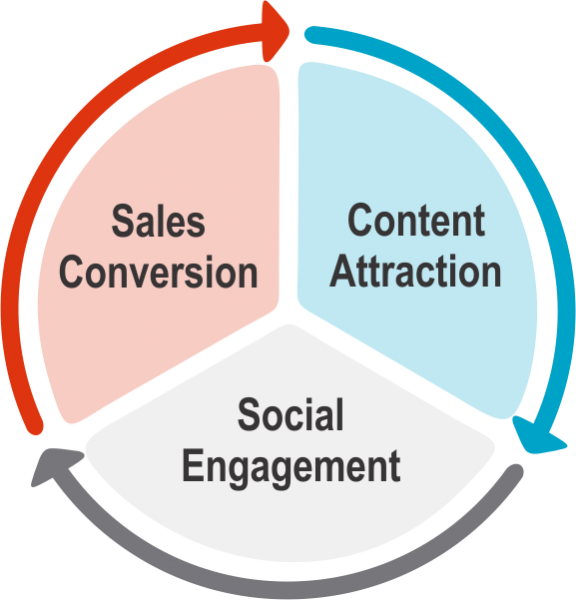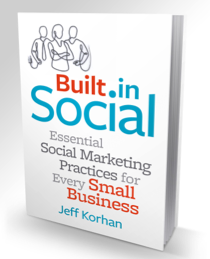
Relationship selling and social marketing are becoming one and the same, and this presents numerous advantages for any business that understands how the two work together. If you hate cold calling and the feeling of interrupting your best clients, then stop selling as you know it and get focused on helping. That’s the heart of relationship selling. To be clear, helping can come in the form of sharing valuable information or introducing new product innovations. Helping is the New Cold CallingWhen I started selling for a large corporation immediately after graduating from college, I did not initially understand my role. I was on the road 3 full weeks out of every month. To be honest, it seemed like I was a professional visitor. The truth is I was practicing relationship selling without even knowing it. One of my goals for the first year was simply not to lose any business, something that can happen when there is a change in the sales team. To make that happen, I did everything I could to help my customers and earn their trust. Is that selling? Traditional selling tends to focus on transactions – moving products and services. Whereas relationship selling assumes that if you continuously earn the trust of the customer they will buy when the time is right. This is the role of your blogging and social media. It informs and educates potential buyers, thereby gradually earning their trust. It’s a new way to sell that happens to work exceptionally well in our digital world. One of the reasons cold calling seldom works is that it is interruptive. Whereas, digital, social marketing is willingly consumed by buyers that want the help. This is one reason why social marketing is the new relationship selling. Relationships are Sustainable: Transactions are NotYou can build a relationship selling process that predictably leads to desired outcomes. The idea is to view every customer interaction as an opportunity to move them from interest to outcome, with that outcome being determined by the buyer – not the seller. Smart companies continuously move their potential buyers and customers to a better place. This used to be the role of the salesperson. Now that it can be accomplished digitally, it can be automated with customer relationship managers (CRM’s) just like the one that delivers this newsletter to thousands of subscribers. The outcome of a relationship selling process is ideally a stronger relationship or a sales transaction. Both are good, but only one is sustainable. Therefore, focus on the continuity of the relationship and let buying become a by-product of that sustained relationship. Investing in Relationships Builds Your BusinessSales transactions are often viewed as the conclusion of the sales cycle, which effectively makes them an ending. Nobody likes endings. A healthier approach is to treat them as events within a continuous process that never ends. When a customer buys they are invested in your company. What is their return on that investment above and beyond the product or service? Many businesses will have to answer zero, because that has traditionally been the standard practice. What happens next is typically a waiting period until the customer buys again. Marketing is designed to make that happen; and so is selling. The business often asks the customer if there is anything they can do to help them. Asking to help is not helping. Helping is proactively giving the customer what they need to be happier, regardless of whether it relates to the business or not. This is relationship selling in this trust economy.
It’s an investment in the collective future of everyone concerned. It’s proactive, continuous, and unlike a transactional approach – it never ends.
|
Relationship Selling in The Trust Economy
March 10, 2014 by Jeff Korhan


